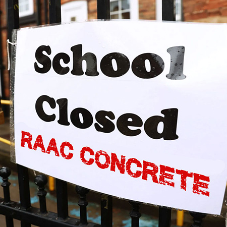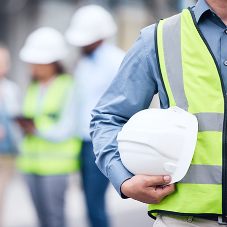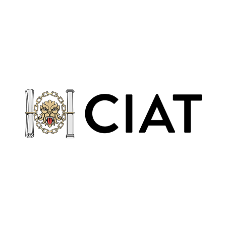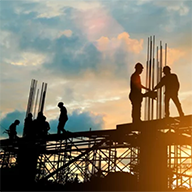Recent research conducted by Arch-Vision indicates that while usage of wooden frame constructions will increase in the six European countries where the fieldwork was conducted, British architects are still pleased with metal structures with 55% saying they will use them more in the future.
In this 2-part blog post, I will be looking at the benefits of metal frame and wooden frame structures in construction.
Arch-Vision’s European Architectural Barometer
Every quarter, Arch-Vision produces the European Architectural Barometer, an international research conducted among 1200 architects in six European countries (UK, Germany, France, Spain, Italy and the Netherlands.)
With the Q2 2012 report suggesting that only 3% of British architects will use metal structures less, and 55% saying they will use them more in the future, I was interested in exploring the possible reasons why metal structures are a popular choice for construction projects.
For this first blog post I contacted Sean Donkin, Marketing Executive at EOS UK, to find out what the benefits of using metal structures are.
EOS Structures design, supply and erect light gauge structural steel frames, up to nine storeys in height, to suit a wide variety of applications.
Why use metal frame structures?
EOS’ use of steel and embracing off-site methods can make positive contributions to the sustainability on all projects, while the steels’ strength and adaptability gives flexibility of use throughout the life of the building.
Key Benefits of using metal frame structures:
• Energy Efficiency – Insulation values are easily achieved and enhanced performance may be readily increased at minimal cost.
• Adaptability – Metal structures are very versatile and lend themselves to ease of modification over the lifetime of the building.
• Low waste in Construction – Off-Site construction ensures minimal wastage.
• High recycled Content – Steel is 100% recyclable and over 90% of the steel is recycled at the end of its life.
• Effective end-of-life options such as refurbishments, dismantling, and re use or recycling.
• Off-site fabrication in a controlled environment which reduces site construction time.
• Clean and dust free fabrication and erection.
• Minimum disturbance for construction activities.
• Foundations can reduce by up to one third using a light steel framing solution.
• It isn’t flammable and won’t set on fire like wood.
• It won’t rot, shrink, or warp.
The timescales involved with steel constructions are less than concrete and timber as steel can be manufactured off-site and bolted together quickly, where as timber needs to be cut individually.
Case study 1: St. George’s Grove, London
St George’s Grove consists of 557 units in 4 blocks of flats to provide rented and shared ownership accommodation for key workers.
The main contractor was not comfortable using a timber frame solution due to snagging problems and potential winter delays. A light gauge steel construction was chosen and the off-site manufacture allowed programme acceleration while retaining quality.
The build was completed ahead of programme and under budget, which was one of the main priorities for this project.
Case study 2: Circular Classroom
This circular classroom was easily engineered and manufactured by EOS.
It would have taken a much greater timescale for this to be achieved by timber, whereas the steel frame is manufactured repeatedly to guarantee each panel is of the same quality.
End-of-life Scenarios
What happens to a building’s structural frame once it is demolished?
Download the full document here, provided by Tata: End-of-life Scenarios Document
For more information about metal structures, take a look at EOS’ Barbour Product Search profile. You can also follow EOS on Twitter: @EOS_UK.
Coming soon…Construction Techniques Part 2: Timber Frame Structures
Look out for our second blog post where we will be exploring the benefits of using timber frame structures to find out why the results of Arch-Vision’s fieldwork indicated there would be an increase in wooden frame constructions.
FURTHER INFORMATION
For more information about Arch-Vision please visit www.arch-vision.eu, or contact Mr. Dirk Hoogenboom at hoogenboom@arch-vision.eu or +31-10-2066900.
Visit EOS’ Barbour Product Search profile for details on their metal frame solutions.

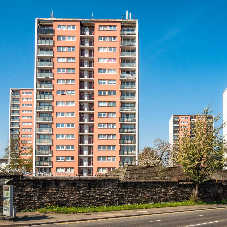
crop192.png)


